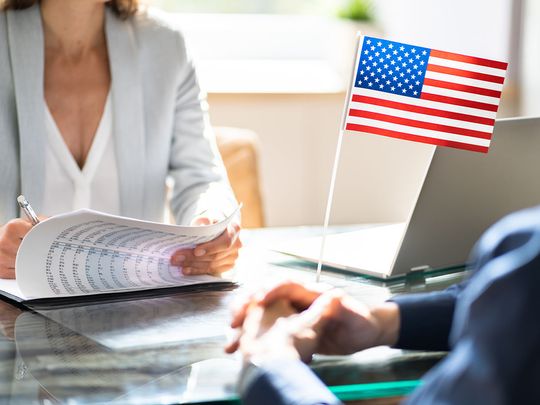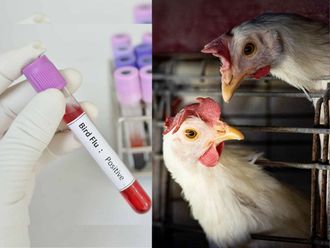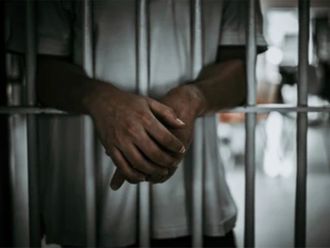
Dubai: The Biden administration has announced new rules to ease H-1B visa requirements, facilitating the hiring of foreign workers with special skills and streamlining the transition from F-1 student visas to H-1B visas. This move, reported by PTI News Agency, is expected to benefit thousands of tech professionals.
The H-1B visa, highly sought after by US companies, allows the employment of foreign workers in specialised fields requiring theoretical or technical expertise.
According to the report, technology firms in the US depend on these visas to hire tens of thousands of workers, particularly from India and China.
Announced by the Department of Homeland Security (DHS) on Tuesday, the rule aims to modernise the definition and criteria for specialised positions and exempt nonprofit and governmental research organisations from the annual visa cap. It also offers greater flexibility for F-1 visa holders transitioning to H-1B status, minimiing disruptions in their lawful status and employment.
“These improvements to the program provide employers with greater flexibility to hire global talent, boost our economic competitiveness, and allow highly skilled workers to continue to advance American innovation,” DHS Secretary Alejandro N. Mayorkas said, as quoted by PTI.
The new rules, effective January 17, 2025, include measures to strengthen oversight of the H-1B program. Employers must demonstrate that they have a legitimate position in a specialty occupation, supported by accurate documentation of their Labor Condition Application (LCA). The DHS has also codified the authority of US Citizenship and Immigration Services (USCIS) to conduct inspections and impose penalties for non-compliance.
The changes will also modernise the eligibility criteria for nonprofit and governmental research organizations, clarifying their exemption from the visa cap. These updates aim to ensure the program’s integrity while addressing the growing needs of the US labour market.
As per PTI, USCIS Director Ur M. Jaddou stated, "The H-1B program was created by Congress in 1990, and there's no question it needed to be modernized to support our nation's growing economy."
The H-1B program has faced criticism for potential abuse, particularly by organisations flooding the system with applications and lowering the chances for others. The DHS emphasised that these reforms aim to prevent such exploitation while ensuring American businesses can meet their labour demands.
This move is expected to bring significant relief to US employers and a boost for Indian tech workers and students aspiring to work in the United States.
Key highlights:
1. Effective date: The new rules take effect on January 17, 2025, just days before President-elect Donald Trump assumes office. A revised Form I-129 will be required for all H-1B petitions.
2. Flexibility for employers and workers:
- Modernised definitions and criteria for specialty occupations.
- Extended flexibilities for F-1 visa students transitioning to H-1B, ensuring lawful status and employment continuity.
- Eligibility extended to H-1B holders with controlling interests in their petitioning organisations under reasonable conditions.
3. Enhanced oversight and integrity:
- Strengthened authority for the US Citizenship and Immigration Services (USCIS) to conduct inspections and penalise non-compliance.
- Employers must verify bona fide specialty positions with consistent documentation for Labour Condition Applications (LCA).
4. Cap-exempt organisations
The rule clarifies eligibility for nonprofit and governmental research organisations, defining them by their “fundamental activity” of research rather than vague criteria.
Modernisation to boost innovation
The changes aim to address US labour needs in critical fields, reduce application system abuse, and improve competitiveness in the global marketplace.
Broader impacts
• Tech sector reliance: Technology companies heavily depend on H-1B visas to hire skilled talent from India, China, and other countries.
• Economic growth: Updated rules will support US innovation, economic competitiveness, and workforce diversity.
• IT professionals: Students and tech workers stand to gain significantly from smoother transitions and expanded opportunities.
Sources: PTI, www.uscis.gov












